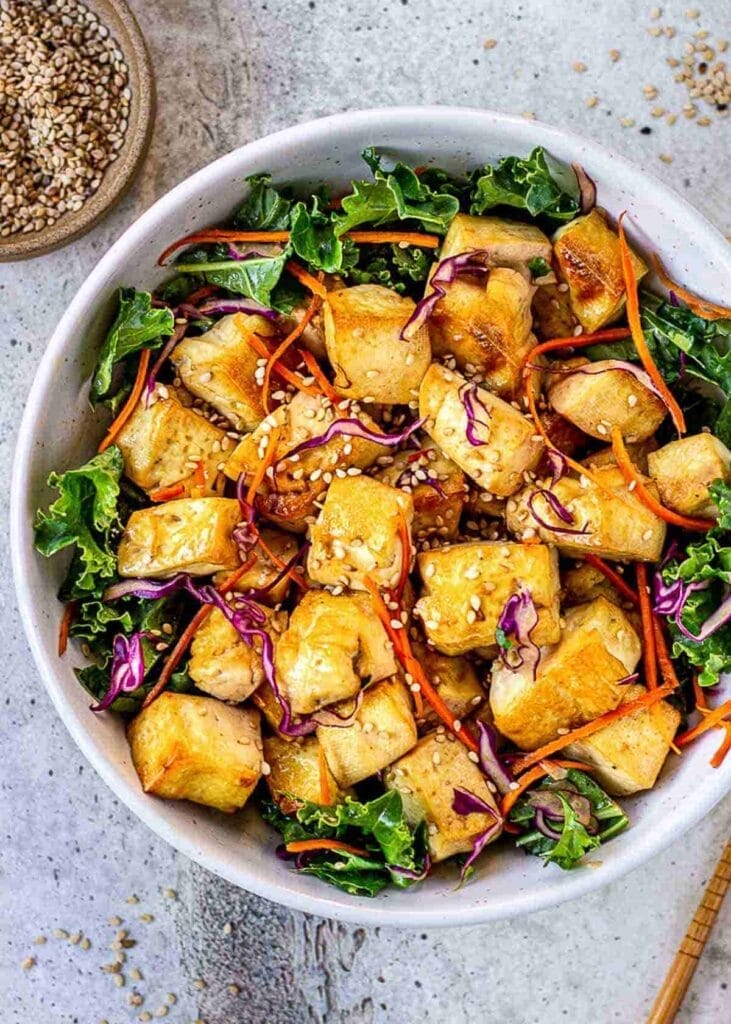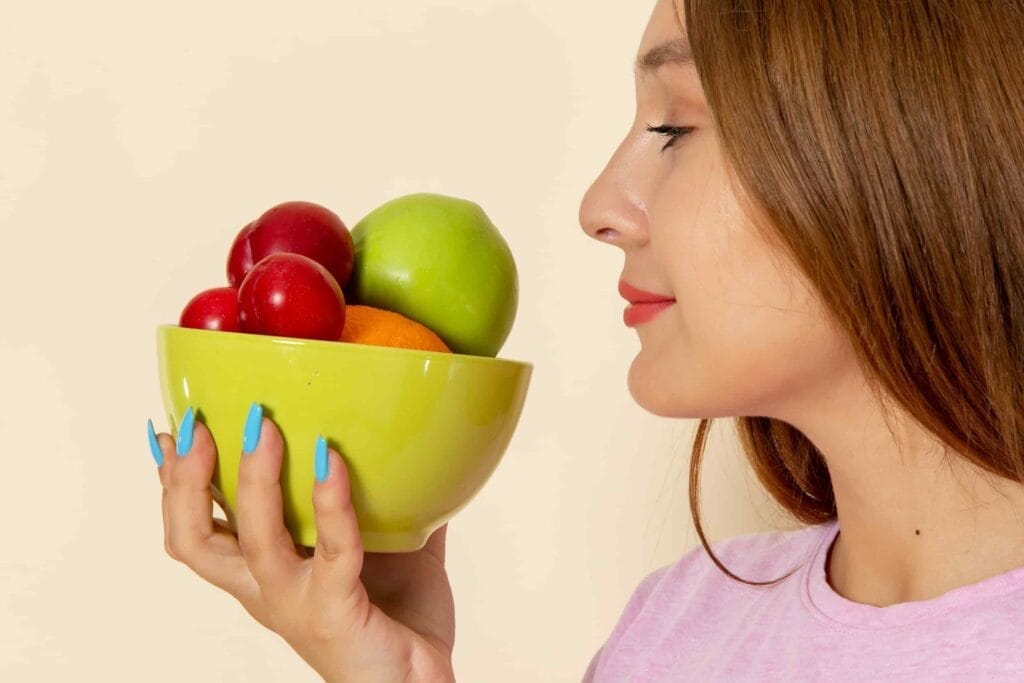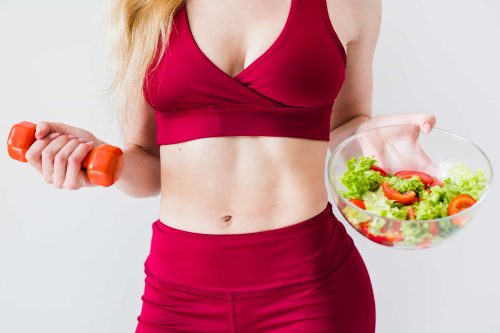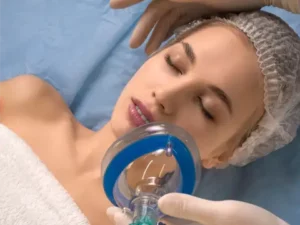How should nutrition be after plastic surgery?
After plastic surgery nutrition should be carefully managed to support the healing process and optimize recovery. Following a well-balanced diet after plastic surgery is essential for providing the necessary nutrients and promoting tissue repair. Here are some important considerations for your diet after plastic surgery:

 4.7
4.7
Would you like to receive information about the operations from Vanity Doctors?
As Vanity, we can give you information about the operation you are considering.
Ask the DoctorHydration: Adequate hydration is crucial for your overall health and recovery. Drink plenty of water throughout the day to stay well-hydrated, especially in the summer heat.
Nutrient-rich foods: Focus on consuming a diet rich in nutrient-dense foods. Include a variety of fruits, vegetables, whole grains, lean proteins, and healthy fats in your meals. These foods provide essential vitamins, minerals, antioxidants, and protein that aid in the healing process.
Protein intake: Protein plays a vital role in tissue repair and wound healing. Include lean sources of protein such as poultry, fish, eggs, legumes, and low-fat dairy products in your diet. This will help support the recovery process and promote the growth of healthy tissues.
Antioxidant-rich foods: Incorporate foods that are high in antioxidants, such as berries, citrus fruits, leafy greens, and colorful vegetables. Antioxidants help reduce inflammation and protect cells from damage, promoting optimal healing.
Healthy fats: Include sources of healthy fats in your diet, such as avocados, nuts, seeds, and olive oil. These fats provide essential fatty acids that aid in reducing inflammation and supporting skin health.
Avoid processed foods and sugary snacks: Limit your intake of processed foods, sugary snacks, and beverages high in added sugars. These foods can increase inflammation, hinder the healing process, and contribute to weight gain.
Follow your surgeon’s recommendations: It’s important to follow the specific dietary guidelines provided by your surgeon. They may have additional recommendations or restrictions based on your unique surgery and individual needs.
Remember that nutrition is just one aspect of the recovery process. It’s crucial to prioritize rest, follow your surgeon’s instructions for wound care and activity restrictions, and attend all post-operative appointments for proper monitoring and guidance.
Is a diet necessary after plastic surgery?
After plastic surgery, paying attention to the foods you eat is crucial for supporting the healing process and optimizing recovery. While a specific “diet” may not be necessary, focusing on the right foods can greatly aid in your recovery. Here are some important considerations regarding the foods to eat after plastic surgery:
1-Nutrient-rich foods: It is important to consume a diet rich in nutrients to provide your body with the necessary building blocks for healing. Include a variety of fruits, vegetables, whole grains, lean proteins, and healthy fats in your meals. These foods provide vitamins, minerals, antioxidants, and essential nutrients to support tissue repair and recovery.
2-Protein-rich foods: Adequate protein intake is essential for wound healing and tissue regeneration. Include lean sources of protein such as chicken, fish, turkey, tofu, beans, and Greek yogurt in your diet. Protein helps with collagen production, which is important for the healing of incisions and the formation of new tissues.

3-Hydration: Staying hydrated is crucial for the healing process. Make sure to drink plenty of water throughout the day, especially in the summer months. Proper hydration helps with tissue hydration, circulation, and overall recovery.
4-Foods high in antioxidants: Antioxidants help reduce inflammation and protect cells from damage. Include foods rich in antioxidants such as berries, cherries, spinach, kale, and other colorful fruits and vegetables in your diet. These foods can aid in reducing swelling, promoting tissue repair, and supporting overall healing.
5-Healthy fats: Include sources of healthy fats in your diet, such as avocados, nuts, seeds, and olive oil. Healthy fats provide essential fatty acids that support skin health, reduce inflammation, and aid in wound healing.
6-Avoid processed foods and sugary snacks: It is best to avoid processed foods, sugary snacks, and beverages high in added sugars. These foods can contribute to inflammation, compromise immune function, and hinder the healing process.
While there may not be a specific “diet” required after plastic surgery, focusing on nutrient-rich foods, adequate protein intake, hydration, and avoiding processed and sugary foods can greatly support your recovery.
What should be included in nutrition plan after plastic surgery?
After plastic surgery, it is important to follow a well-balanced and nutritious diet to support your recovery. Here are some key foods to include in your nutrition plan after plastic surgery:
1-Fresh fruits and vegetables: Incorporate a variety of fresh fruits and vegetables into your diet. These provide essential vitamins, minerals, and antioxidants that support healing and boost your immune system. Choose seasonal options like watermelon, berries, tomatoes, cucumbers, leafy greens, and bell peppers.
2-Lean proteins: Include lean sources of protein in your meals to aid in tissue repair and regeneration. Opt for grilled chicken, turkey, fish, tofu, lentils, and beans. Protein-rich foods promote wound healing and help rebuild damaged tissues.
3-Whole grains: Choose whole grains such as brown rice, quinoa, whole wheat bread, and oats. These provide fiber, vitamins, and minerals that contribute to overall health and facilitate proper digestion.
4-Healthy fats: Incorporate healthy fats into your diet for their anti-inflammatory properties and to support skin health. Include foods like avocados, nuts, seeds, olive oil, and fatty fish such as salmon or mackerel.

5-Hydrating foods and beverages: Stay hydrated by consuming plenty of fluids, especially in the summer heat. Watermelon, cucumbers, oranges, berries, and herbal teas can help meet your hydration needs while providing vitamins and minerals.
6-Foods rich in vitamins C and E: These vitamins are important for collagen production and wound healing. Citrus fruits, strawberries, kiwi, almonds, sunflower seeds, and spinach are good sources of these vitamins.
7-Foods high in zinc: Zinc supports immune function and wound healing. Include foods like lean meats, seafood, whole grains, nuts, and seeds in your diet.
8-Avoid processed foods and sugary drinks: Minimize the intake of processed foods, sugary snacks, and beverages high in added sugars. These can contribute to inflammation and potentially delay the healing process.
Remember to consult with your surgeon or healthcare provider for personalized dietary recommendations based on your specific surgery and individual needs.
Is water consumption important in nutrition after plastic surgery?
Water consumption is crucial in the post-operative period after plastic surgery. Staying well-hydrated is essential for supporting the healing process, maintaining overall health, and aiding in the recovery after surgery. In addition to water, fluids can also be obtained from other sources such as herbal teas, clear broths, and electrolyte-rich beverages.
However, it’s important to note that the focus of the question is on the “food to avoid after plastic surgery,” rather than water consumption. Therefore, we will provide you with a list of foods to avoid after plastic surgery to promote a smooth recovery:
1-Salty foods: High-sodium foods can contribute to fluid retention and swelling, which may prolong the healing process. Avoid or limit processed foods, fast food, packaged snacks, and high-sodium condiments.
2-Spicy foods: Spicy foods can potentially irritate the surgical site and increase discomfort. It’s best to avoid or minimize the consumption of spicy foods until you have fully healed.
3-Alcohol: Alcohol can interfere with wound healing, impair the immune system, and increase the risk of complications. It’s advisable to avoid alcohol during the initial healing phase and follow your surgeon’s instructions regarding its reintroduction.
4-Caffeine: While moderate caffeine intake is generally acceptable, excessive consumption may contribute to dehydration and interfere with your sleep patterns, which are important for recovery. It’s advisable to limit your intake of caffeinated beverages like coffee, tea, and energy drinks.
5-Carbonated beverages: Carbonated drinks can potentially cause bloating, gas, and discomfort, particularly in the immediate post-operative period. It’s best to avoid or limit carbonated beverages during the recovery phase.
6-Sugary foods and beverages: Excessive sugar intake can hinder the healing process and contribute to inflammation. Limit your consumption of sugary snacks, desserts, sodas, and other sugary beverages.
7-Hard and chewy foods: Depending on the type of surgery you have undergone, your surgeon may recommend avoiding hard and chewy foods that can strain the surgical area. Follow their specific guidelines to avoid any potential complications.
Remember, it’s essential to follow your surgeon’s instructions regarding your post-operative nutrition plan and any specific dietary restrictions based on your individual needs and the type of surgery you have undergone. They can provide you with the most accurate and tailored advice for your recovery journey.
What to eat after plastic surgery?
After plastic surgery, it’s important to consume light and easily digestible foods, especially during the summer when heat and humidity can affect your appetite and comfort. Here are some light foods that can be eaten after plastic surgery:
1-Smoothies: Nutrient-rich smoothies made with fresh fruits, leafy greens, yogurt, and a liquid base like water or coconut water are refreshing and provide essential vitamins and minerals. They can be easily customized to your taste preferences and dietary needs.
2-Soups and broths: Light soups and broths, such as vegetable or chicken broth, are hydrating and easy to consume. They provide nourishment while being gentle on your digestive system.
3-Fresh fruits: Choose water-rich fruits like watermelon, cantaloupe, berries, and citrus fruits. They are hydrating, packed with vitamins, and provide a natural source of energy.
4-Steamed vegetables: Steamed vegetables like broccoli, cauliflower, zucchini, and carrots are nutritious and easy to digest. They retain their natural flavors and textures while being light on the stomach.

5-Lean proteins: Opt for lean sources of protein such as grilled chicken, turkey, or fish. These provide essential amino acids for healing while being light and easily digestible.
6-Yogurt and soft cheeses: These dairy products are a good source of protein and calcium. Choose low-fat or Greek yogurt and soft cheeses that are easy to eat and gentle on your digestive system.
7-Whole grains: Incorporate light and easily digestible whole grains like quinoa, couscous, or brown rice into your meals. They provide fiber, energy, and essential nutrients.
8-Herbal teas and infused water: Stay hydrated with herbal teas or infused water. They add flavor and hydration without any added sugars or caffeine.
Remember to listen to your body and start with small portions to ensure your comfort. It’s essential to follow your surgeon’s guidelines regarding your specific dietary recommendations after plastic surgery. They can provide you with personalized advice based on the type of surgery you underwent and your individual needs.
How many days after plastic surgery should I eat?
After plastic surgery, the timing of when to resume eating will depend on the specific instructions provided by your surgeon. It’s important to follow their guidance as they are familiar with your surgical procedure and individual needs. The following general guidelines may apply:
1-Initial recovery period: During the first few hours after surgery, you will likely be advised to avoid eating or drinking until the effects of anesthesia wear off. This is to prevent any potential complications and ensure your safety.
2-Clear liquids: In the initial stages of recovery, you may gradually progress to consuming clear liquids such as water, herbal teas, or clear broths. This is typically done to ease your digestive system and provide hydration.
3-Soft foods: As your recovery progresses and depending on your surgeon’s instructions, you may be able to introduce soft foods into your diet. This may include items like pureed soups, yogurt, mashed vegetables, and smoothies. These foods are easier to chew and swallow, minimizing any discomfort.
4-Solid foods: Eventually, you will be able to reintroduce solid foods into your diet, typically as tolerated. Start with light and easily digestible options such as steamed vegetables, lean proteins, whole grains, and fresh fruits.
It’s crucial to note that the timeline for resuming eating can vary from person to person, depending on the specific surgery performed and individual factors. Your surgeon will provide you with specific instructions tailored to your needs and recovery progress. Following these guidelines will ensure a safe and successful recovery.
Which foods should be avoided after plastic surgery?
After plastic surgery, it’s important to maintain a healthy diet to support your recovery. Here are some foods that are generally advised to be avoided or limited in a healthy diet after plastic surgery;
1-Processed and fried foods: These foods are typically high in unhealthy fats, sodium, and artificial additives, which can contribute to inflammation and hinder the healing process. It’s best to avoid or minimize foods like fast food, frozen meals, chips, and fried snacks.
2-Sugary foods and beverages: Excessive sugar intake can impact wound healing and promote inflammation. It’s advisable to limit or avoid sugary snacks, desserts, sodas, energy drinks, and fruit juices with added sugars.
3-Spicy foods: Spicy foods can potentially irritate the surgical site, causing discomfort and delaying the healing process. It’s recommended to avoid or minimize the consumption of spicy foods until you have fully healed.
4-Alcohol: Alcohol can interfere with wound healing, impair the immune system, and increase the risk of complications. It’s best to avoid alcohol during the initial healing phase and follow your surgeon’s instructions regarding its reintroduction.
5-Caffeinated beverages: While moderate caffeine intake is generally acceptable, excessive consumption may contribute to dehydration and interfere with your sleep patterns, which are important for recovery. It’s advisable to limit your intake of caffeinated beverages like coffee, tea, and energy drinks.
6-Carbonated beverages: Carbonated drinks can potentially cause bloating, gas, and discomfort, particularly in the immediate post-operative period. It’s best to avoid or limit carbonated beverages during the recovery phase.
7-High-sodium foods: Foods high in sodium can lead to fluid retention and swelling, which may prolong the healing process. Limit your intake of processed foods, canned soups, salty snacks, and condiments with high sodium content.
Instead, focus on consuming a healthy diet after plastic surgery that includes fresh fruits, vegetables, lean proteins, whole grains, and plenty of water. These foods provide essential nutrients, vitamins, minerals, and hydration to support your recovery and overall well-being.
Always consult with your surgeon or healthcare provider for personalized dietary recommendations based on your specific surgery and individual needs. They can provide you with detailed guidance on post-operative nutrition to ensure a smooth recovery.
How much protein should I eat after plastic surgery?
The amount of protein you should consume after plastic surgery can vary depending on factors such as your overall health, specific surgical procedure, and individual needs. While We will provide general guidance, it’s important to consult with your surgeon or a registered dietitian for personalized recommendations.
Protein is particularly important for supporting wound healing and tissue repair. It plays a crucial role in the recovery process. Aim to incorporate adequate amounts of protein-rich foods into your diet, such as:
1-Lean meats: Choose lean sources of meat like skinless chicken, turkey, fish, or lean cuts of beef. These provide high-quality protein with less saturated fat.
2-Eggs: Eggs are a great source of complete protein and are versatile in meal preparations. They can be enjoyed boiled, scrambled, or incorporated into various dishes.
3-Legumes: Beans, lentils, and chickpeas are plant-based protein sources that are also rich in fiber and other beneficial nutrients. Include them in salads, soups, or as a side dish.
4-Dairy and dairy alternatives: Milk, yogurt, and cheese are good sources of protein, calcium, and other essential nutrients. If you prefer dairy alternatives, opt for soy milk, almond milk, or other fortified options.
5-Nuts and seeds: Almonds, walnuts, chia seeds, and flaxseeds are protein-rich options that can be added to salads, smoothies, or enjoyed as a snack.
6-Tofu and tempeh: These soy-based products are popular protein sources for vegetarians and vegans. They can be grilled, stir-fried, or used as a meat substitute in various recipes.
The specific amount of protein needed can vary, but as a general guideline, aim to consume around 0.8 to 1 gram of protein per kilogram of body weight per day. However, individual needs may differ, so it’s best to consult with a healthcare professional for personalized recommendations.
Additionally, ensure you stay well-hydrated by drinking plenty of water and other fluids. Adequate hydration is essential for supporting the healing process and overall health.
Remember, nutrition plays a vital role in the recovery process, and a balanced diet with sufficient protein can support your body’s healing and rejuvenation after plastic surgery.
Are you supposed to eat carbs after plastic surgery?
Water consumption is important after plastic surgery, especially during the summer when temperatures are high and the risk of dehydration increases. Adequate hydration supports the healing process and overall well-being. However, when it comes to carbohydrate intake after plastic surgery, it’s essential to focus on consuming complex carbohydrates rather than simple carbs.
Complex carbohydrates provide a more sustained release of energy and are a healthier choice compared to simple carbs, which can cause spikes in blood sugar levels. Including complex carbohydrates in your diet can help provide the necessary energy for your body to heal and recover.
While consuming carbohydrates is important, it’s crucial to strike a balance and avoid excessive consumption of refined and sugary carbohydrates. These can contribute to inflammation, hinder the healing process, and potentially lead to weight gain.
Remember to stay adequately hydrated by drinking water throughout the day, especially during the summer. Aim to drink at least 8-10 glasses of water per day, or more if recommended by your surgeon or healthcare provider. Hydration supports the healing process, promotes healthy skin, and helps prevent complications associated with dehydration.
It’s always recommended to consult with your surgeon or a registered dietitian for personalized dietary advice tailored to your specific needs and recovery progress after plastic surgery.
What can you not eat after plastic surgery?
After aesthetics, there are certain foods you may want to avoid to support your recovery and minimize potential discomfort. Here are some considerations for solid nutrition after aesthetics:
1-Spicy foods: Spicy foods can potentially irritate the surgical site and increase discomfort. It’s best to avoid or limit spices, hot sauces, and chili peppers until your surgeon gives you the green light.
2-Foods high in sodium: High-sodium foods can contribute to swelling and fluid retention. Minimize your intake of processed foods, fast food, canned soups, and salty snacks.
3-Foods that may cause gas or bloating: Certain foods can lead to gas and bloating, which can be uncomfortable during the healing process. Examples include carbonated drinks, beans, cabbage, broccoli, and onions. Consider temporarily avoiding or reducing these foods in your diet.
4-Hard and chewy foods: Initially, you may have limited jaw mobility or discomfort, so it’s advisable to avoid hard and chewy foods that require significant chewing. Opt for softer alternatives until you are comfortable with solid foods.
5-Alcohol and caffeine: Alcohol and caffeinated beverages can interfere with the healing process and potentially interact with medications. It’s best to avoid alcohol and limit caffeine intake during the initial stages of recovery.
6-Sugary and processed foods: Excessive sugar intake can negatively affect wound healing and increase inflammation. Additionally, processed foods often lack nutrients and can hinder your recovery. Choose whole, nutrient-dense foods instead.
Focus on incorporating a solid nutrition plan after aesthetics that includes:
-Lean proteins: Such as grilled chicken, fish, tofu, or legumes for tissue repair.
-Colorful fruits and vegetables: These provide antioxidants, vitamins, and minerals for overall health and healing.
-Whole grains: Opt for whole grain bread, rice, and pasta to provide sustained energy.
-Healthy fats: Include sources like avocados, nuts, and olive oil for their anti-inflammatory properties.
-Hydration: Drink plenty of water to stay hydrated and support the healing process.
Remember, every individual and surgical procedure is unique, so it’s important to consult with your surgeon or a registered dietitian for personalized dietary recommendations based on your specific needs and recovery progress. They can provide you with tailored guidance to optimize your recovery and overall well-being.





